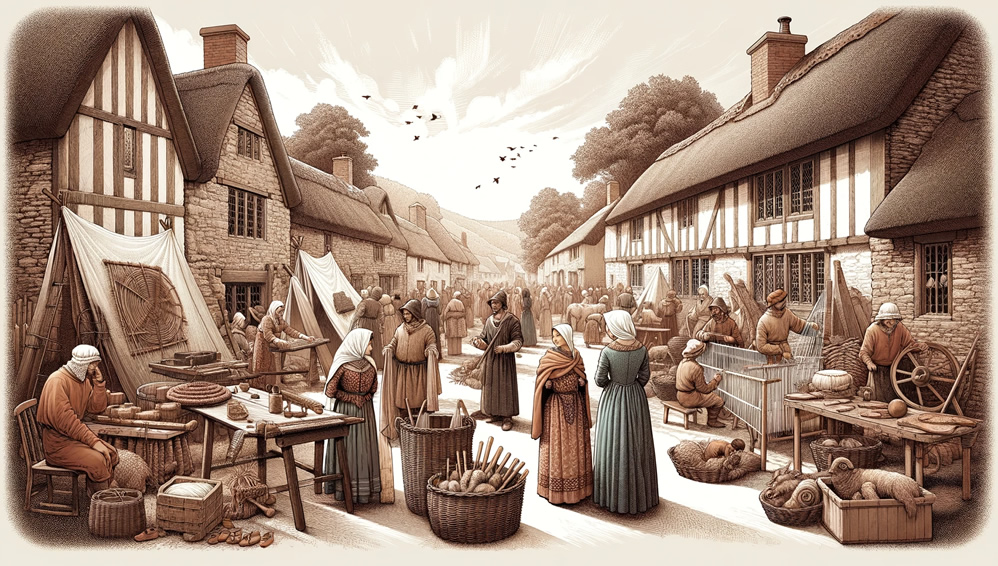14th Century Crickhowell
Life in Crickhowell during the 14th century would have been deeply influenced by the broader social, political, and economic conditions of medieval Wales, along with the specific context of this region. The period was marked by significant events such as the Welsh rebellions against English rule, the Black Death, and the gradual transformation of societal structures.
Economic Life
Crickhowell, situated in the picturesque Usk Valley in Powys, was primarily an agricultural community during the 14th century. The economy was largely based on farming, with locals engaged in growing crops and rearing livestock. The fertile land along the river Usk provided ample opportunities for agriculture, and the surrounding forests and mountains offered resources such as timber and game. Markets and fairs, possibly held in nearby settlements or within Crickhowell itself, would have been important for the exchange of goods and social interaction.
Religious Life
Religion played a central role in the lives of the people of Crickhowell, with Christianity being the dominant faith. The local church would have been a focal point for the community, serving not just as a place of worship but also as a venue for social gatherings, meetings, and the administration of local justice. Religious festivals and saints’ days would have marked the passage of the year and provided opportunities for communal celebration and reflection.
Daily Life and Culture
Despite the hardships of the era, daily life in Crickhowell would have had its rhythms and routines. The community would have been close-knit, with families working together to manage their homes and land. Traditional Welsh culture, including music, storytelling, and poetry, would have been important aspects of social life, helping to strengthen communal bonds and pass down knowledge and history through generations.
Final Thoughts
Life in 14th century Crickhowell was shaped by the natural environment, the agricultural economy, and the wider political events of the time. While it undoubtedly presented challenges, such as disease and political unrest, the community’s resilience and adherence to tradition would have provided a strong foundation for facing these adversities. The legacy of this period can still be felt in the region today, with its rich history and cultural heritage forming an integral part of its identity.

